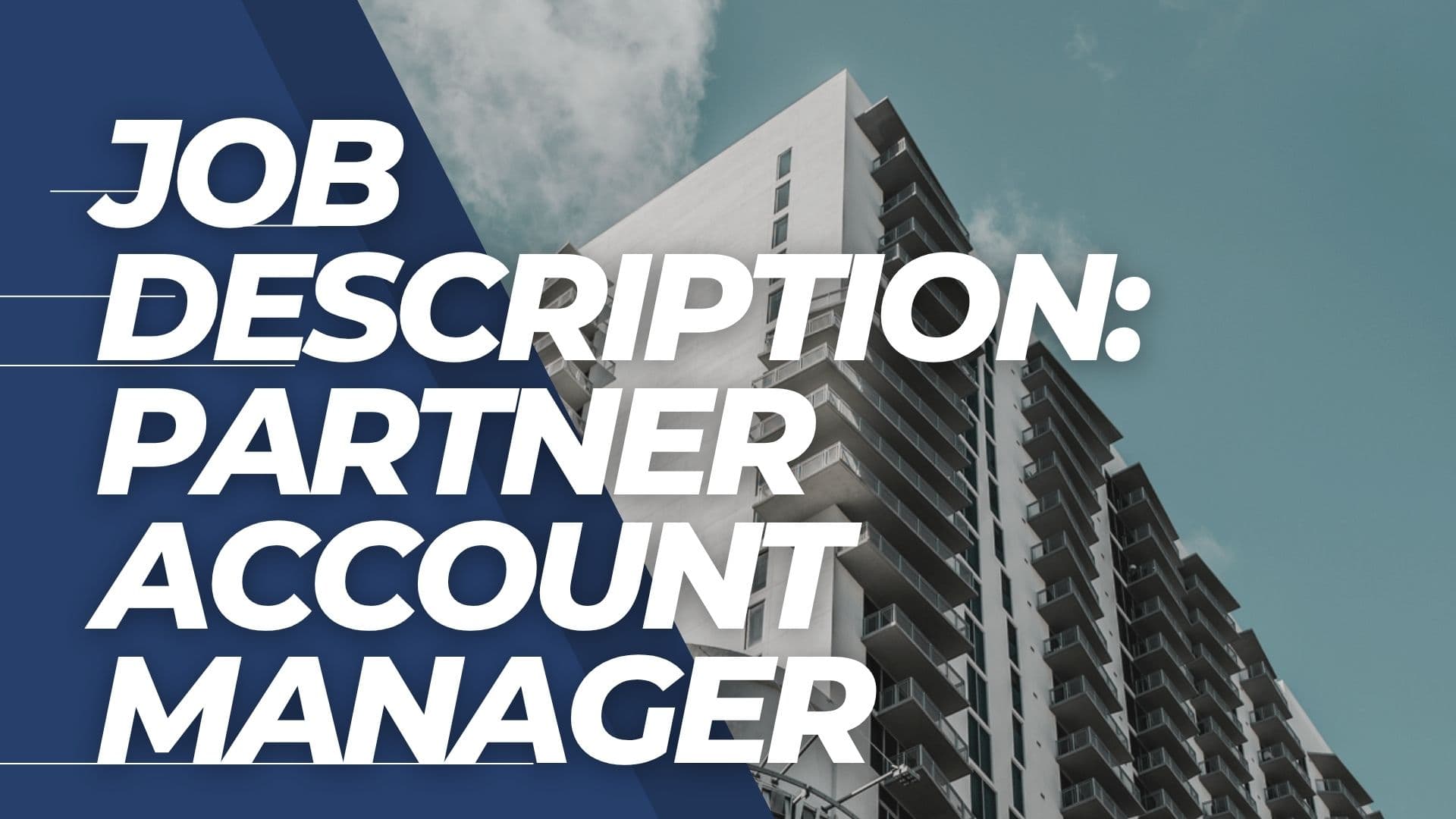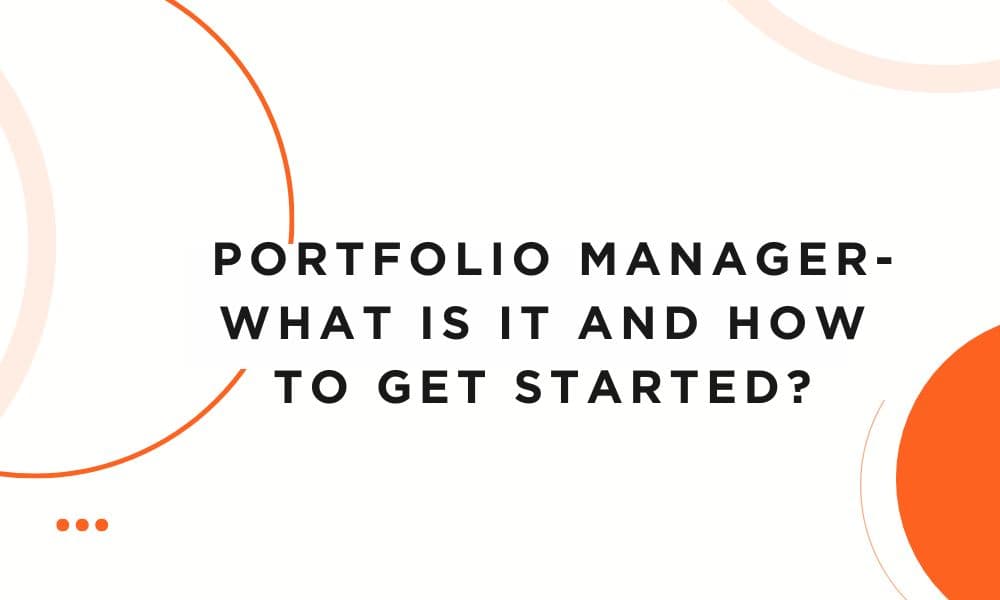TRUSTED BY THE SMARTEST TEAMS IN THE WORLD FOR CERTIFIED CANDIDATES
SPOTO Blogs
Useful learning materials to become certified IT personnel
-
- 534
- Emma
- 2025-06-09 17:14
-
- 965
- Emma
- 2025-06-06 12:23
-
- 884
- SPOTO
- 2025-06-06 12:05
-
- 588
- SPOTO
- 2025-06-06 11:45
-
- 914
- Emma
- 2025-06-06 11:32
-
- 860
- Emma
- 2025-06-05 12:07
-
- 836
- Emma
- 2025-06-05 11:16
-
- 681
- SPOTO
- 2025-06-05 11:14
-
- 851
- SPOTO
- 2025-06-05 10:47
TRUSTED BY THE SMARTEST TEAMS IN THE WORLD FOR CERTIFIED CANDIDATES
SPOTO Blogs
Useful learning materials to become certified IT personnel
-
- 534
- Emma
- 2025-06-09 17:14
Table of Contents1. What is a User Interface Designer?2. What does a User Interface Designer do?3. Why pursue a career in UI design?4. How to become a User Interface Designer?5. Conclusion Are you curious about the profession behind shaping your digital experiences? Imagine a career where creativity meets technology, and your designs influence millions! Welcome to the world of User Interface (UI) design—a dynamic field that's reshaping how we interact with apps, websites, and devices every day. In this blog, we will explore this exciting career path through a structured lens: What is a UI designer? What do they do? Why pursue this career? How to become one? And how can you kickstart your journey? 1. What is a User Interface Designer? A UI designer is a tech professional responsible for designing the visual elements of digital products. Think of every button you click, menu you navigate, or icon you see — all crafted meticulously by UI designers to be visually appealing and user-friendly. Their work isn't just about creating pretty pictures; it's about designing interfaces that function seamlessly and intuitively. A UI designer's primary goal is to create a compelling visual environment that communicates the brand, guides users effortlessly, and ensures accessibility for everyone. From color schemes and typography to interactive buttons and responsive layouts, their work determines how users experience a digital product at first glance and throughout their journey. 2. What does a User Interface Designer do? Tasks and Responsibilities of a User Interface Designer UI designers wear many hats, combining creativity with technical skills. Their typical tasks include Designing the overall look of digital interfaces: color, layout, typography Creating wireframes and prototypes to visualize user flows Developing style guides to maintain consistency across platforms Collaborating with UX designers, developers, and product managers Ensuring accessibility and responsiveness for diverse devices and users Testing designs on different platforms and gathering user feedback Maintaining UI style guides and updating designs based on evolving standards In essence, UI designers meticulously craft every visual and interactive element, transforming complex functionalities into simple, engaging experiences. Related Job Opportunities UX Designer Visual Designer Interaction Designer UI/UX Developer Product Designer Motion Designer Design Systems Manager 3. Why pursue a career in UI design? The allure of UI design lies in its blend of creativity and technology. If you enjoy visual storytelling, problem-solving, and working on diverse projects, UI design provides a perfect avenue. Plus, in today’s digital-first world, UI professionals are in high demand across industries—tech, finance, healthcare, entertainment, and more. Diverse Challenges and Growth Opportunities Every project offers new challenges—designing for mobile, web, wearables, or even IoT devices—keeping work engaging. As you gain experience, you can specialize in areas like visual design, interaction design, or accessibility, opening opportunities for senior roles, leadership, and even entrepreneurship. Rewarding Salary and Job Outlook With user interface design's rising importance, salaries are attractive. According to recent data, UI designers in the U.S. earn around $130,000 annually, with strong growth projected—an 8% increase through 2033, according to the U.S. Bureau of Labor Statistics. Such figures reflect a thriving career landscape promising stability and upward mobility. 4. How to become a User Interface Designer? Embarking on a UI design career involves acquiring the right mix of skills, experience, and portfolio. Here's a roadmap: Learn Core Skills Start with understanding visual design principles—color theory, typography, and layout—and technical skills like wireframing, prototyping, and familiarity with tools such as Figma, Adobe XD, or Sketch. Online courses, many of which are offered by platforms like SPOTO, can accelerate your learning. SPOTO's courses focus on hands-on skills like prototyping and responsive design, giving you practical knowledge aligned with industry needs. Gain Practical Experience Build projects—redesign existing apps, develop your website, or volunteer for non-profits. Internships, freelance gigs, or personal projects help you understand real-world challenges and refine your skills. Create a Strong Portfolio Showcase your best work, emphasizing your problem-solving approach and process. Platforms like Behance or Dribbble are great for sharing your projects and connecting with potential employers. Expand Your Network and Stay Updated Attend industry webinars and workshops, and connect with other designers online. Continuous learning through courses keeps you aligned with evolving trends and tools. Consider Certification Certifications from reputable institutions or tech giants like Google and Microsoft can significantly validate your skills and enhance your employability in the competitive UI design field. For example, Google offers certifications in UX Design that demonstrate your proficiency in user-centered design principles 5. Conclusion A career in UI design is more than a job; it's an opportunity to influence how users interact with technology daily. With the right skills, experience, and guidance from trusted platforms like SPOTO, you can transform your passion for design into a rewarding profession. Whether you're a creative soul or a tech enthusiast, UI design welcomes all with open arms—ready to shape the future of digital experience. Are you ready to craft the interfaces of tomorrow? Explore SPOTO's courses today and take the first step toward becoming a sought-after UI designer! -
- 965
- Emma
- 2025-06-06 12:23
Table of Contents1. What is a User Experience Designer?2. What does a User Experience Designer do?3. Why pursue a career in UX design?4. How to become a User Experience Designer?5. Conclusion Have you ever wondered what truly goes on behind the sleek websites and intuitive apps we use daily? While most users focus on the interface, there's a dynamic, creative, and strategic role that makes all this possible—the User Experience (UX) Designer. But what exactly does a UX Designer do, and why should you consider a career in this exciting field? In this blog, we'll explore the role of a User Experience Designer by outlining their tasks and responsibilities, the career opportunities they present, reasons to pursue this path, and practical steps to get started. 1. What is a User Experience Designer? At its core, a User Experience Designer focuses on creating products that are not only functional but also engaging, easy to navigate, and satisfying for users. According to the Interaction Design Foundation, UX design involves designing products that provide meaningful and relevant experiences—this means understanding user needs, behaviors, and psychology to craft interfaces that genuinely connect with users. Unlike visual designers or UI designers, who concentrate mainly on aesthetics, UX designers take a holistic approach. They analyze user interactions, conduct research, wireframe solutions, and test prototypes to refine the user journey. Their goal? To ensure each touchpoint feels intuitive and valuable. 2. What does a User Experience Designer do? Tasks and Responsibilities of a User Experience Designer Let's break down some key tasks: User Research: Conducting surveys, interviews, and usability testing to gather insights about user needs, preferences, and pain points. Information Architecture: Organizing content and navigation pathways to create a logical flow that enhances usability. Wireframing and Prototyping: Designing wireframes and prototypes to visualize concepts early and gather feedback. User Testing: Evaluating prototypes through tests, analyzing user behavior, and making iterative improvements. Collaboration: Working closely with UI designers, developers, product managers, and stakeholders to align on project goals and ensure a seamless experience. Data Analysis: Using analytics to understand user interactions and inform design decisions. This multifaceted role demands not only creativity but also analytical skills, empathy, and effective communication. For instance, a UX Designer in Hong Kong, according to recent salary reports, can expect competitive compensation, reflecting the high demand for these skills. Delving deeper, a UX Designer's duties often include Mapping out user journeys to identify friction points. Developing personas that represent different user groups. Creating storyboards and scenarios to simulate real-world use. Conducting A/B testing to compare design variations. Ensuring accessibility standards are met, making products usable for all users. Keeping abreast of industry trends and best practices. By executing these tasks, UX Designers help companies differentiate themselves in a crowded marketplace. They transform abstract ideas into tangible, user-focused solutions that boost customer satisfaction, loyalty, and ultimately, business success. Related Job Opportunities UI Designer UX Researcher Interaction Designer Product Designer 3. Why pursue a career in UX design? Thinking about turning passion into profession? Here are compelling reasons: Strong Salary and Job Outlook According to recent reports, UX Designers in regions like Hong Kong can earn attractive salaries, with steady job growth projected over the coming years. The average monthly salary for a user experience designer position in the Hong Kong Special Administrative Region ranges from HK$26,000 to HK$30,000. Diverse Challenges Every project is different, requiring unique solutions that keep the work exciting and fulfilling. Opportunities for Growth From becoming a lead designer to moving into product management or consultancy, the career ladder is broad. Impactful Work UX designers shape the way people interact with technology, making a tangible difference in users' lives. Moreover, the field promotes continuous learning, allowing professionals to grow their skill set and adapt to emerging trends such as AI integration or voice UX. 4. How to become a User Experience Designer? Embarking on a UX career involves several steps: Build Foundational Skills: Become proficient in design thinking, user research, wireframing, and prototyping tools like Sketch or Figma. Learn the Theory: Understand principles of human-computer interaction, accessibility, and psychology. Get Certified: Obtain recognized UX design certifications such as the Google UX Design Certificate to enhance your skills and increase your marketability in the industry. Gain Experience: Start with personal projects, internships, or freelance gigs to build a portfolio. Network and Stay Updated: Attend industry events, join communities, and keep abreast of the latest UX trends. Remember, continuous practice and real-world experience are essential. An intensive course from a reputable provider can prepare you practically for the workplace, and SPOTO's offerings are highly recommended for their comprehensive curriculum. 5. Conclusion User Experience Design is more than a career; it's a chance to create meaningful, user-centric products that make a real difference. If you're drawn to problem-solving, creativity, and technology, UX design could be your ideal path. With the right skills, mindset, and resources—including quality courses—you'll be well on your way to thriving in a dynamic and rewarding industry. Interested in starting? Explore training options and consider how SPOTO's professional courses can guide your journey into the exciting world of UX design. Your future as a user experience innovator awaits! -
- 884
- SPOTO
- 2025-06-06 12:05
Table of Contents1. What is a Partner Account Manager?2. What does a Partner Account Manager do?3. Career Insights: Salary, Outlook & Related Roles4. What Are the Qualifications to Become a Partner Account Manager? A Partner Account Manager is an internal manager who is responsible for managing and maintaining key partnerships of an enterprise or organization, and acts as a liaison between the organization's internal and external partners.This article will introduce you to what a Partner Account Manager is, the career information and prospects of a Partner Account Manager and the necessary conditions to become a Partner Account Manager. 1. What is a Partner Account Manager? A Partner Account Manager is an internal manager who is responsible for managing and maintaining key partnerships of an enterprise or organization, and acts as a liaison between the organization's internal and external partners. 2. What does a Partner Account Manager do? The work of a Partner Account Manager revolves around the relationship with partners. First, they need to provide product and technical support to partners, and answer any concerns and questions that partners may have as quickly and thoroughly as possible. The goal is to make partners satisfied with the partnership. Second, the Partner Account Manager needs to develop daily work plans, work with cross-functional teams, and develop business strategies to generate potential customers. Make sure that partners meet your required capabilities and qualifications. Third, they need to develop business plans to promote sales and increase profit potential, while working with different teams (including development, marketing, and products) to achieve set revenue goals. Evaluate each partner's marketing plan and recommend improvements when necessary. Finally, the Partner Account Manager reviews the business plan in a timely manner and modifies it according to the needs of the partners. 3. Career Insights: Salary, Outlook & Related Roles (1) Partner Account Manager Salary According to data from ZipRecruiter on May 29, 2026, the average annual salary for a Partner Account Manager in the United States is $65,816. That's about $31.64 per hour. That's $1,265 per week or $5,484 per month. Annual salaries can be as high as $106,000 and as low as $29,500, but most Partner Account Manager salaries currently range from $48,000 to $78,500, with the highest earners in the United States making $96,000 per year. The average salary range for a Partner Account Manager varies widely (up to $30,500), which means there may be many opportunities for advancement and pay based on skill level, location, and years of experience. (2) Job Outlook of Partner Account Manager According to the U.S. Bureau of Labor Statistics (BLS), employment of advertising, promotions, and marketing managers will grow 8% from 2023 to 2033. As more companies seek ways to differentiate their products through advertising, marketing, and public relations in an increasingly crowded market, jobs will increase. Therefore, the employment prospects of Partner Account Managers will continue to grow. (3) Similar Occupations Account Manager Key Account Manager Account Executive Sales Account Manager Sales Manager Sales Director Business Development Manager Customer Success Manager Channel Sales Manager Strategic Partnerships Manager 4. What Are the Qualifications to Become a Partner Account Manager? (1) Obtain a Bachelor's Degree When recruiting a Partner Account Manager, employers usually require job seekers to have a bachelor's degree in a profession such as business administration, marketing or a related field. At the same time, a higher level of education can provide a certain degree of competitiveness in the workplace. (2) Develop professional skills Partner Account Managers need to have a number of key skills to effectively manage partnerships and drive business growth. First, excellent communication and interpersonal skills are essential to help build trust and maintain long-term cooperation. Partner Account Managers need to be proficient in customer relationship management (CRM) systems, such as Salesforce, to effectively track partner interactions and improve service quality. And strong communication, negotiation and contract management skills are required to ensure that the interests of both parties are maximized and promote the smooth conclusion of cooperation agreements. Secondly, Partner Account Managers must have in-depth market analysis capabilities, be able to identify industry trends and formulate corresponding strategies, and provide value-added services to partners. Finally, leadership and teamwork capabilities enable them to lead cross-departmental teams to achieve common goals, plan and execute cooperation projects, ensure timely completion and achieve expected results. Data analysis skills are also a plus, and can evaluate cooperation performance and formulate improvement plans. (3) Earn Industry Certifications Obtaining a certification that is highly recognized by the industry can prove your professional ability and ability to perform the position, and can also enhance your competitiveness in the workplace. Therefore, we recommend that you obtain the Cisco Renewals Manager 700-805 CRM.Designed for Cisco Partner Renewal Managers, the 60-minute CRM 700-805 exam assesses the candidate's understanding of customer experience (CX) principles and the tools included in the Renewal Manager training course to enhance the certifier's customer service capabilities. -
- 588
- SPOTO
- 2025-06-06 11:45
Table of Contents1. What is an Inside Sales Representative ?2. What does an Inside Sales Representative do?3. Career Insights: Salary, Outlook & Related Roles4. What Are the Qualifications to Become an Inside Sales Representative ? Inside Sales Representative refers to a professional salesperson who sells a company's products to customers through online communication software, telephone or email.This article will introduce you to what an Inside Sales Representative is, the career information and prospects of an Inside Sales Representative and the necessary conditions to become an Inside Sales Representative . 1. What is an Inside Sales Representative ? Inside Sales Representative refers to a professional salesperson who sells a company's products to customers through online communication software, telephone or email. 2. What does an Inside Sales Representative do? The work of internal sales representatives mainly revolves around how to sell better and how to increase sales. First, they are good at finding new sales opportunities. While some inside sales representatives handle incoming calls, many also look for new customers to increase product sales. Second, they need to regularly survey customers and accounts. In order to be able to make effective sales pitches, they need to determine the customer's annual revenue, business needs, or current suppliers before contacting a potential customer. They usually make multiple follow-up calls to assess customer needs and discuss solutions. After the sale is completed, representatives may continue to stay in touch to build a strong customer relationship and sell other products or services. Third, inside sales representatives usually demonstrate how products can increase sales. These demonstrations can be conducted through online portals or during on-site visits. Finally, in order to be legal and compliant with sales regulations, inside sales representatives negotiate customized packages with customers. They may also discuss product quantities, prices, or terms of service before reaching a sales agreement. 3. Career Insights: Salary, Outlook & Related Roles (1) Inside Sales Representative Salary According to ZipRecruiter, the average annual salary for an Inside Sales Representative in Los Angeles, USA, is $58,834, as of May 29, 2026. That works out to about $28.29 per hour. That's $1,131 per week or $4,902 per month. Salaries range from as high as $96,018 to as low as $27,434, but most Inside Sales Representative salaries currently range from $45,200 to $67,400, with the highest earners making $83,444 per year in Los Angeles. The average salary range for an Inside Sales Representative varies widely (as much as $22,200), which means there may be many opportunities for advancement and increased pay based on skill level, location, and years of experience. (2) Job Outlook of Inside Sales Representative According to the U.S. Bureau of Labor Statistics, overall employment of wholesale and manufacturing sales representatives is expected to grow by 1% from 2023 to 2033. Despite limited job growth, an average of approximately 149,900 new wholesale and manufacturing sales representative positions are expected to be added each year over the next decade. Most of these job openings are expected to fill those workers who change careers or exit the labor market. (3) Similar Occupations Account Executive Business Development Manager Sales Development Representative (SDR) Sales Manager Sales Engineer Retail Sales Specialist Customer Service Representative Outside Sales Representative Telesales Representative Sales Support Specialist Telemarketer 4. What Are the Qualifications to Become an Inside Sales Representative ? (1) Obtain a Bachelor's Degree When recruiting Inside Sales Representatives, employers usually require job seekers to have a bachelor's degree in a profession such as business administration, marketing or communications. At the same time, a higher level of education can provide a certain degree of workplace competitiveness. (2) Develop professional skills Inside Sales Representatives need to have a number of key skills to improve sales efficiency and establish good customer relationships. These include the following skills and abilities: 1. The ability to actively listen, to focus on understanding customer needs and adjust sales strategies based on the other party's feedback; 2. Good communication skills can help sales representatives clearly express product value and improve persuasiveness; 3. In-depth product knowledge is the basis for building a professional image, which helps answer customer questions and facilitate transactions; 4. Problem-solving skills can help quickly respond to customer objections or challenges and propose effective solutions. In addition, time management skills are also indispensable, allowing sales representatives to effectively arrange their daily work rhythm and focus on high-value customers and business opportunities; good customer service attitude helps retain existing customers and promote repurchase. 5. The mastery of sales skills, such as prospect development and closing strategies, is the core of improving performance, emotional intelligence helps sales staff deal with pressure and build trust, and proficiency in CRM systems and digital tools can improve overall work efficiency. (3) Earn Industry Certifications Obtaining a certification that is highly recognized by the industry can prove your professional ability and ability to perform the position, and can also enhance your competitiveness in the workplace. Therefore, we recommend that you obtain the Cisco Renewals Manager 700-805 CRM.Designed for Cisco Partner Renewal Managers, the 60-minute CRM 700-805 exam assesses the candidate's understanding of customer experience (CX) principles and the tools included in the Renewal Manager training course to enhance the certifier's customer service capabilities. -
- 914
- Emma
- 2025-06-06 11:32
Table of Contents1. What is quality assurance testing?2. What Does a Quality Assurance Tester do?3. Why become a Quality Assurance Tester?4. How to Start Your Journey?5. Conclusion Are you curious about how top tech companies deliver flawless software and exceptional user experiences? What if the secret weapon behind their success is a role you've barely considered—Quality Assurance Tester? In today's fast-paced digital world, ensuring that websites and applications run smoothly isn't just a bonus; it's essential. But what exactly does a QA tester do, and how can you start your journey in this dynamic field? This article walks you through an in-depth exploration, from what QA testing entails to career growth opportunities and even how to kickstart your path with quality training. Let's dive in. 1. What is quality assurance testing? Quality assurance (QA) testing is the structured process of evaluating software or products at various stages of development to identify bugs, glitches, or vulnerabilities before they reach users. Unlike traditional quality control, which inspects finished products, QA emphasizes preventing issues through process-oriented activities. It involves designing and executing tests meticulously to ensure the final product aligns with standards, functions flawlessly, and delivers a seamless user experience. In simpler terms, QA testing acts like a vigilant gatekeeper—questioning, testing, and breaking things intentionally to make sure the final product works perfectly when it hits the market. Whether it's a mobile app, website, or complex enterprise software, QA acts as the last line of defense against glitches that could cost a company its reputation or customer trust. 2. What Does a Quality Assurance Tester do? Duties and Responsibilities of a Quality Assurance Tester A QA tester's role is multi-faceted and vital. They are the first line of interaction with the software, tasked with systematically finding flaws that could impair user experience or security. Their responsibilities include Creating detailed test plans and test cases: They design scenarios that mimic real-world use. Manual and automated testing: From clicking buttons to writing scripts, they simulate user actions to uncover issues. Identifying, documenting, and tracking bugs: Clear and concise bug reports help developers pinpoint problems swiftly. Collaborating with developers, product managers, and UX teams: Effective communication ensures everyone understands the issues and solutions. Retesting fixes: After developers address bugs, QA verifies that the solutions work as intended. Moreover, QA testers are skilled in various testing types—unit, integration, system, performance, usability, and even mobile testing—each serving a unique purpose in the software lifecycle. Their goal? To prevent defects, improve quality, and ultimately ensure the product exceeds user expectations. Related Job Opportunities QA Automation Tester QA Engineer QA Manual Tester Test Manager Test Engineer Test Analyst Test Automation Engineer 3. Why become a Quality Assurance Tester? Salary and Job Outlook For starters, the demand is growing. The US Bureau of Labor Statistics projects an impressive 17% growth rate for QA roles by 2033, translating into hundreds of thousands of new jobs worldwide. And with the increasing reliance on digital solutions, the importance of QA will only rise. Salary prospects are attractive too. The average QA tester in the US earns around $82,000 annually, with the potential to grow as you gain experience and certifications. Positions like QA automation engineer or QA manager command even higher salaries, often exceeding six figures. Diverse Challenges and Opportunities for Growth Whether you enjoy scripting automation, exploring new testing tools, or working hand-in-hand with developers, the field is rich with growth prospects. It's a career where you GET to solve puzzles, improve products, and see immediate results—an appealing combination for problem solvers and detail-oriented professionals. 4. How to Start Your Journey? Embarking on a QA career is more accessible than you might think. Start by gaining foundational knowledge through online courses—We offer comprehensive training that covers essential testing techniques, automation tools, and industry best practices. Their courses are designed for beginners and seasoned professionals alike, preparing you to tackle real-world testing challenges confidently. Key steps include: Learn the basics of software testing: Understand different testing types, methodologies, and how they ensure quality. Develop technical skills: Familiarize yourself with testing tools like Selenium, JMeter, or Postman for automation. Get certified: Obtain Google IT Support or Google Cloud certifications to boost your marketability. Gain practical experience: Practice by working on projects or enrolling in hands-on courses—SPOTO's practice-led modules are perfect here. Investing in structured education accelerates your path, minimizes trial and error, and puts you on a clear trajectory to a rewarding QA career. 5. Conclusion Quality assurance testing is more than just finding bugs; it's about ensuring excellence, building trust, and shaping user experiences that keep customers coming back. With a solid foundation, continuous learning, and industry-relevant certifications, you can transition into this field and enjoy a career rich with challenges and opportunities. Are you ready to start? The journey begins now—equipped with the right skills and training, your future as a QA professional is within reach. Take the leap, and let SPOTO support your ambitions every step of the way. Interested in learning more? Check out SPOTO's specialized QA testing courses—they are designed to empower you with the skills that employers value most. Enroll today and turn your curiosity into a lucrative, impactful career! -
- 860
- Emma
- 2025-06-05 12:07
Table of Contents1. An Overview of a Digital Product Manager2. What Does a Digital Product Manager do?3. Why become a Digital Product Manager?4. How to Start Your Journey?5. Conclusion Behind every innovative digital platform, there's a professional orchestrating its development, evolution, and user experience — the Digital Product Manager. But what exactly does a Digital Product Manager do, and why is this role becoming increasingly vital in today's tech-driven world? To answer these questions, we'll explore this exciting career step-by-step, covering what the role entails, job opportunities, why you should consider becoming one, and how you can start your journey. 1. An Overview of a Digital Product Manager A Digital Product Manager (DPM) is a strategic professional responsible for guiding the development and success of digital products—whether it's a mobile app, a website, or a SaaS platform. They act as a bridge between customer needs, business goals, and technical teams, ensuring products deliver value to users and align with company objectives. As digital transformation accelerates across industries, this role is becoming more crucial than ever for organizations seeking innovative solutions and a competitive edge. 2. What Does a Digital Product Manager do? The core focus of a Digital Product Manager is managing the product lifecycle from inception to launch and beyond. Their duties are multifaceted, requiring a combination of technical, strategic, and communication skills. Duties and Responsibilities : Defining Product Vision Setting the long-term goals and strategic roadmap of the product, based on market research, customer feedback, and business priorities. This acts as a guiding light for the entire team. Gathering and Prioritizing Requirements Engaging with users, stakeholders, and cross-functional teams to understand needs, then translating these into clear, actionable features and tasks. Collaborating with Development Teams Working closely with engineers, designers, and marketers to execute the product plan, ensuring deadlines and quality standards are met. Analyzing Market Trends Keeping abreast of emerging technologies and industry trends to inform product features and stay ahead of competitors. Monitoring Product Performance Using analytics tools to track user engagement, satisfaction, and operational metrics, then making iterative improvements based on data. Managing Launches and Updates Planning and coordinating product releases to maximize impact, handling feedback, and continual enhancement. User Experience (UX) Focus Ensuring the product provides a seamless, engaging experience that meets user expectations and increases retention. Related Job Opportunities UX Designer Product Owner Business Analyst Digital Marketing Manager Technical Project Manager 3. Why become a Digital Product Manager? Salary and Job Outlook The demand for digital product managers is surging globally, fueled by the proliferation of digital businesses and startups. Salaries vary based on experience and location but typically range from $80,000 to over $150,000 annually. In fast-paced markets like Hong Kong, tech hubs, and North America, salaries are even more competitive, reflecting the strategic importance of this role. Diverse Challenges and Opportunities for Growth Being a Digital Product Manager means constantly learning and adapting. It's a role that demands creativity, analytical thinking, and leadership. You'll work on cutting-edge technology, influence product strategies, and directly impact the user experience. This position also paves the way for senior management roles like Chief Product Officer or CTO—all promising avenues for career advancement and personal growth. 4. How to Start Your Journey? Embarking on a career path as a Digital Product Manager involves acquiring key skills, practical experience, and ongoing learning. Gain a Strong Educational Background Pursuing degrees in areas like business, marketing, or computer science provides essential technical and strategic knowledge, preparing you to understand market dynamics, user needs, and technological fundamentals crucial for effective product management. Develop Product Management Skills Focusing on user research, agile methodologies, UX design, data analytics, and project management enables you to understand customer needs, manage workflows efficiently, and deliver products that resonate with users while meeting business objectives. Earn Professional Certifications Certifications such as PMP (Project Management Professional) and Scrum certifications (like Certified Scrum Product Owner—CSPO) are highly valued. They validate your project leadership and Agile development skills, enhancing your credibility and effectiveness as a product manager. Build Practical Experience Engaging in internships, freelance projects, or volunteering with startups lets you gain real-world insights, develop practical skills, and understand various industry challenges—making your transition into a professional product management role smoother and more confident. 5. Conclusion A career as a Digital Product Manager is not only rewarding but also crucial in shaping the digital products that define our modern world. It combines creativity, strategic thinking, and technical knowledge, making it ideal for innovative minds eager to make an impact. If you are ready to take this exciting first step, investing in quality education—like the courses provided by SPOTO—can set you apart from the competition. With dedication and the right guidance, your journey toward becoming a key player in digital innovation begins now. Are you ready to lead digital transformations and build the future? The digital age is waiting for talented product managers like you. -
- 836
- Emma
- 2025-06-05 11:16
Table of Contents1. An Overview of an IT Specialist2. What Does an IT Specialist do?3. Why become an IT specialist?4. How to Start Your Journey?5. Conclusion Have you ever wondered who keeps the digital world running smoothly behind the scenes? In our increasingly connected world, IT specialists are the unsung heroes ensuring our computers, networks, and digital systems operate seamlessly. But what exactly does it take to be an IT specialist? What does the role involve, and is it the right career path for you? If these questions pique your curiosity, you're in the right place. In this article, we'll explore the IT specialist profession in detail, covering what they do, the skills required, job prospects, salary expectations, and how you can begin your journey today. 1. An Overview of an IT Specialist An IT specialist, also known as an information technology specialist, is a professional responsible for establishing, maintaining, and troubleshooting an organization's computer systems and networks. They ensure that digital tools function correctly, securely, and efficiently. As organizations from small startups to multinational corporations depend heavily on technology, IT specialists are vital in maintaining operational continuity. This role combines technical expertise with problem-solving and strategic planning, making it ideal for tech enthusiasts eager to make a tangible impact in today's digital age. 2. What Does an IT Specialist do? IT specialists handle a wide array of responsibilities—from assessing IT infrastructure and managing resources to ensuring cybersecurity. Key Duties Include: Assessing IT Infrastructure: Evaluating networks, hardware, and software to ensure they function optimally, identifying upgrade needs, and troubleshooting issues. Managing IT Resources and Staff: Overseeing IT projects, creating schedules, managing budgets, and collaborating with senior management to align technology with organizational goals. Providing Technical Support: Assisting staff and customers with hardware and software problems, setting up equipment, and training users. Implementing Security Protocols: Protecting digital assets through firewalls, encryption, and cybersecurity measures. Maintaining Equipment: Installing, repairing, and upgrading hardware like routers, servers, and devices, keeping logs of maintenance activities. Developing Custom Solutions: Tailoring IT tools and software to solve specific business challenges, enhancing productivity. Training and Documentation: Guiding personnel on best practices and updating company IT policies. These varied tasks demand a blend of technical skills, communication abilities, and critical thinking. Individuals who thrive on solving complex problems and adapting to rapidly evolving technology environments are naturally suited to this role. Related Job Opportunities Cybersecurity Specialist Systems Administrator Cloud Engineer Database Administrator Technical Support Engineer Software Developer 3. Why become an IT specialist? Opting for a career as an IT specialist isn't just about passion for tech—it's a strategic move toward a promising future filled with opportunities. Salary and Job Outlook The demand for IT specialists is soaring globally. According to recent data, the average annual salary for IT professionals ranges around $53,000, with potential for higher earnings based on specialization and experience. For example, cybersecurity specialists can earn significantly more, reflecting the increasing need for digital security. The job outlook remains robust, with organizations continually investing in IT infrastructure, cybersecurity, cloud computing, and data management. As technology advances, so will the opportunities for IT specialists to grow, specialize, and command higher wages. Diverse Challenges and Opportunities for Growth IT roles are dynamic and challenging. You may work on network security one day and develop innovative solutions the next. This variety keeps the work engaging and provides continuous learning opportunities. Plus, the profession offers pathways into management, consultancy, cybersecurity, cloud architecture, and other advanced fields, ensuring long-term career growth. 4. How to Start Your Journey? Embarking on an IT career begins with gaining relevant skills and certifications. Here's a structured approach: Educational Foundation Pursuing a degree in computer science, information technology, or related fields provides fundamental knowledge, essential technical skills, and a solid academic background necessary for entry-level and advanced IT roles. Acquire Certification Earning recognized credentials such as CompTIA Security+ or Cisco's CCNA demonstrates expertise in key areas, enhances your resume, and increases your chances of landing better job opportunities in competitive markets. Build Practical Experience Gaining hands-on experience through internships, labs, or volunteering allows you to apply theoretical knowledge, develop problem-solving skills, and gain confidence in real-world IT scenarios. Continuously Learn The rapidly evolving technology landscape requires staying current with the latest trends, tools, and certifications to remain competitive, relevant, and capable of tackling emerging challenges effectively. 5. Conclusion A career as an IT specialist is both rewarding and promising. It offers a chance to work at the forefront of technology, solve complex problems, and build a secure future amid digital transformation. Whether you're just starting or looking to sharpen your skills, investing in quality training, such as the courses offered by SPOTO, can accelerate your journey. With dedication and the right guidance, you'll be well on your way to becoming a vital contributor in the IT world. Are you ready to embrace this exciting career path? The digital future awaits, and the first step is yours to take! -
- 681
- SPOTO
- 2025-06-05 11:14
Table of Contents1. What is an Agile Project Manager?2. What does an Agile Project Manager do?3. Career Insights: Salary, Outlook & Related Roles4. What Are the Qualifications to Become an Agile Project Manager? The Agile Project Manager is responsible for the update and iteration of management projects in an enterprise or organization, and controls the successful delivery of the final product of the agile project.This article will introduce you to what an Agile Project Manager is, the career information and prospects of an Agile Project Manager and the necessary conditions to become an Agile Project Manager. 1. What is an Agile Project Manager? The Agile Project Manager is responsible for the update and iteration of management projects in an enterprise or organization, and controls the successful delivery of the final product of the agile project. 2. What does an Agile Project Manager do? The main responsibility of the Agile Project Manager is to shape the working environment for the continuous development of the solution and promote collaboration within the solution development team. Specifically, they should lead the agile team and promote transparent communication and collaboration within the agile team, and conduct necessary cross-departmental collaboration to align project goals with broader organizational goals and ultimately project delivery and implementation. 3. Career Insights: Salary, Outlook & Related Roles (1) Agile Project Manager Salary According to ZipRecruiter data on May 28, 2026, the average hourly wage for an Agile Project Manager in the United States is $57.18. The hourly wage can be as high as $86.30 and as low as $13.94, but most Agile Project Managers currently make between $47.36 and $67.79 across the United States. The average salary range for an Agile Project Manager varies widely, which means there may be many opportunities for advancement and increased pay based on skill level, location, and years of experience. (2) Job Outlook of Agile Project Manager According to the U.S. Bureau of Labor Statistics, the employment of project management specialists is expected to grow by 7% from 2023 to 2033, which is faster than the average growth rate for all occupations. There will be an average of about 77,000 project management specialist job vacancies each year over the next decade. Many of these job vacancies are expected to fill those who change careers or exit the labor market (such as retirement). Overall, the employment prospects of Agile Project Managers will continue to brighten as market demand rises. (3) Similar Occupations Scrum Master Program Manager Technical Project Manager Delivery Manager Project Director IT Project Manager Operations Manager 4. What Are the Qualifications to Become an Agile Project Manager? (1) Obtain a Bachelor's Degree When recruiting Agile Project Managers, employers often require job seekers to have a bachelor's degree in a related field, such as project management or a related field (such as business administration, engineering or IT). At the same time, a higher level of education can provide a certain degree of workplace competitiveness. (2) Develop professional skills To be an excellent agile project manager, you need to have a variety of comprehensive skills, including soft skills and hard skills. In terms of soft skills, agile project managers need to have good organizational skills and be able to effectively plan, arrange and manage teams and tasks; Agile project managers need to have strong adaptability and be able to flexibly respond to changing customer needs and market environments; At the same time, they need to have excellent communication skills and be able to efficiently transmit information between multiple teams and departments to ensure that each member clearly understands their own responsibilities. At the same time, they must have good leadership to motivate the team to achieve goals and create a positive collaborative atmosphere. In terms of hard skills, agile project managers need to have a deep understanding of agile methodologies (such as Scrum, Kanban and Lean) and flexibly apply them to different project scenarios; be proficient in using agile management tools such as Jira, Trello or Asana to improve team efficiency and project transparency; They also need to have a certain technical understanding and communicate smoothly with developers; At the same time, they must be able to perform data analysis, evaluate project performance and continuously optimize, and have good risk management capabilities to identify potential problems in advance and develop response strategies. (3) Earn Industry Certifications Obtaining a certification that is highly recognized by the industry can prove your professional ability and ability to perform the position, and can also enhance your competitiveness in the workplace. Therefore, we recommend that you obtain the PMI - PMP.The PMP certification is the industry standard for project management professionals. The PMP curriculum covers the latest best practices defined in the sixth edition of the PMBOK Guide and is aligned with the latest PMP exam content outline 2026. It also covers emerging trends, custom considerations, and core competencies required of project management professionals. PMP training assesses the competency of practitioners and identifies the importance, criticality, and frequency of each knowledge, task, and skill required to meet industry standards as a project manager. -
- 851
- SPOTO
- 2025-06-05 10:47
Table of Contents1. What is a Portfolio Manager?2. What does a Portfolio Manager do?3. Career Insights: Salary, Outlook & Related Roles4. What Are the Qualifications to Become a Portfolio Manager? A portfolio manager is a person working in the financial field who develops different investment portfolios by evaluating the returns and risks of various financial products and selects the best combination among these investment portfolios in order to create profits or avoid risks for enterprises or organizations.This article will introduce you to what a Portfolio Manager is, the career information and prospects of a Portfolio Manager and the necessary conditions to become a Portfolio Manager. 1. What is a Portfolio Manager? A portfolio manager is a person working in the financial field who develops different investment portfolios by evaluating the returns and risks of various financial products and selects the best combination among these investment portfolios in order to create profits or avoid risks for enterprises or organizations. 2. What does a Portfolio Manager do? Portfolio managers are responsible for managing and evaluating a range of investments, such as stocks, bonds, mutual funds and other securities, and making decisions based on this to maximize returns and minimize risks. At the same time, due to the constant changes in the financial market, they need to track the performance of the portfolio in a timely and regular manner, and adjust the original portfolio as needed to avoid market risks. Specifically, their work content is as follows: 1. Research and select stocks, bonds, mutual funds and other investment products. Develop and implement investment strategies to achieve goals. 2. Monitor and analyze market trends and developments. Monitor and evaluate performance and adjust investments as needed. 3. Monitor and report portfolio performance. Analyze financial statements and reports to find new investment opportunities. 4. Manage client portfolios, including asset allocation, risk management and portfolio rebalancing. 5. Provide financial advice and guidance to customers. 6. Keep abreast of the latest financial regulations and laws. And establish good relationships with other financial professionals. 3. Career Insights: Salary, Outlook & Related Roles (1) Portfolio Manager Salary According to ZipRecruiter as of May 28, 2026, the average annual salary for a portfolio manager in Los Angeles is $108,245. That works out to about $52.04 per hour. That works out to $2,081 per week or $9,020 per month. Salaries range from as high as $202,033 to as low as $39,868, but most portfolio manager salaries currently range from $70,600 to $140,100, with the top earners making $165,397 per year in Los Angeles. The average salary range for a portfolio manager varies greatly (as much as $69,500), which suggests there may be many opportunities for advancement and increased pay based on skill level, location, and years of experience. (2) Job Outlook of Portfolio Manager According to data from the raise.me website, the projected percentage change in employment from 2016 to 2026 is 11% (higher than the average growth rate of 7%). According to the U.S. Bureau of Labor Statistics, the employment of portfolio managers is expected to grow by 5% from 2019 to 2029, which is higher than the average for all occupations. Overall, the demand for portfolio managers is expected to remain strong. (3) Similar Occupations Financial Manager Asset Manager Wealth Advisor Investment Manager Financial Analyst Investment Banker Actuary Economist Project Manager Program Manager Property Manager 4. What Are the Qualifications to Become a Portfolio Manager? (1) Obtain a Bachelor's Degree When hiring portfolio managers, employers often require job seekers to have a bachelor's degree in a related field, such as finance, economics, business administration, accounting, or mathematics/statistics. At the same time, a higher level of education can provide a certain degree of workplace competitiveness. (2) Develop professional skills According to Indeed's official website's summary of portfolio manager skills, an excellent portfolio manager must have excellent data and text analysis and investment decision-making capabilities, and be able to comprehensively evaluate market trends, risks and returns; in addition, they must have financial knowledge and mathematical skills to be able to interpret complex financial data and formulate investment strategies accordingly. Furthermore, good communication skills are equally important in order to clearly convey investment advice and results to clients or team members; finally, project management capabilities are also one of the core skills to help efficiently manage multiple asset portfolios and achieve client goals. (3) Earn Industry Certifications Obtaining a certification that is highly recognized by the industry can prove your professional ability and ability to perform the position, and can also enhance your competitiveness in the workplace. Therefore, we recommend that you obtain the PMI - PMP.The PMP certification is the industry standard for project management professionals. The PMP curriculum covers the latest best practices defined in the sixth edition of the PMBOK Guide and is aligned with the latest PMP exam content outline 2026. It also covers emerging trends, custom considerations, and core competencies required of project management professionals. PMP training assesses the competency of practitioners and identifies the importance, criticality, and frequency of each knowledge, task, and skill required to meet industry standards as a project manager.














